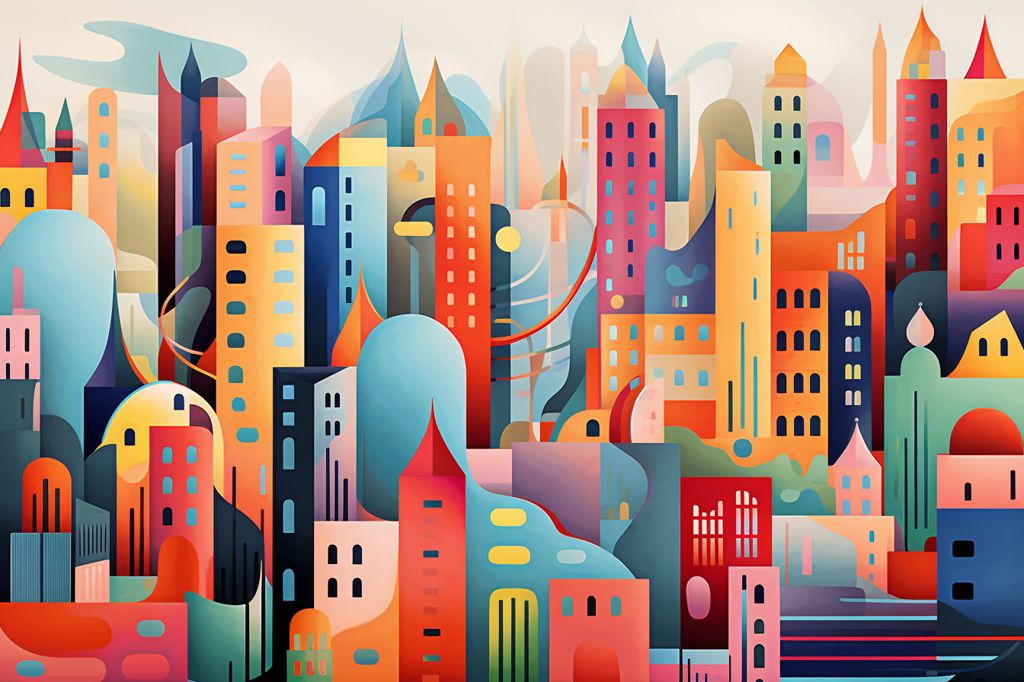The march, which has been granted official permission for a peaceful demonstration, offers a platform for the EFF and its supporters to express their concerns and aspirations for social and political transformation. It is also an opportunity for artists and creatives within the city to engage with the political landscape and inspire new forms of artistic expression, highlighting the complex relationship between politics, society, and art in Cape Town.
An Evolving Political Landscape
The bustling city of Cape Town is a fusion of history and modernity, weaving together a diverse array of cultures and politics in a continuous state of development. This progress is highlighted as the city readies itself for an upcoming Economic Freedom Fighters (EFF) march on Monday. Despite concerns on social media of a citywide shutdown, local authorities have dispelled these notions, assuring that no such disruption will occur.
JP Smith, the mayoral committee member for Safety and Security, has announced that the city is informed of the EFF’s planned march. He puts the public at ease by stating that the party has filed for a peaceful protest permit, complete with specific stipulations. These provisions entail preventing intimidation of city personnel, abstaining from entering the Ndabeni pound, and prohibiting taxis from joining the procession. Furthermore, the march will involve a range of political parties and civic organizations, like the South African National Civics Association, but will have a participant cap of 1,000 people.
To better understand this unfolding event, it is crucial to explore the broader context of Cape Town’s political and artistic past. The city has acted as a cultural and ideological crossroads over time, culminating in a rich and varied mosaic that influences its present-day landscape. The EFF, a far-left party established in 2013, embodies this diverse ideological range.
The EFF’s Influence and Impact
The EFF’s radical and revolutionary approach has attracted considerable support among disadvantaged and marginalized communities within South Africa. Their demands for land expropriation without compensation and the public ownership of resources resonate with numerous citizens who have suffered through years of economic disparity and systemic subjugation.
This march offers a platform for the EFF and its proponents to express their concerns and aspirations, and to advocate for substantial changes in a society still confronting the remnants of apartheid and colonialism. As the protest has been granted official permission for a peaceful demonstration, the march is ready to act as a symbol of the democratic principles South Africa has strived to maintain since apartheid’s end in 1994.
While the march holds significant political importance, it is also essential to consider the effect such events have on the city’s cultural and artistic spheres. Cape Town’s dynamic art scene functions as an indicator of the social and political environment, and this forthcoming march is no exception.
Artistic Responses and Reflections
Artists and creatives within the city frequently draw inspiration from their vibrant surroundings, discovering innovative ways to convey their personal and shared experiences. The EFF march generates ample opportunity for this imaginative exploration, touching on topics of social justice, identity, and cultural expression.
Historically, Cape Town’s artistic community has been instrumental in shaping public conversation and challenging prevailing norms. Through various mediums such as literature, visual arts, and performance, artists have consistently employed their talents to promote social and political transformation. The upcoming march presents a unique chance for artists to engage with the political landscape and inspire new forms of artistic expression.
As Cape Town gears up for the EFF march, it is vital to acknowledge the historical continuity and importance of such events. The march goes beyond the immediate political objectives of the EFF and its backers, symbolizing a wider narrative of perseverance and defiance within the context of an intricate historical backdrop.
Cape Town’s political landscape is diverse and ever-changing, but it is the city’s thriving artistic tradition which often provides a distinctive viewpoint on these incidents. Artists, creatives, and intellectuals persist in recording and examining the political and social atmosphere, delivering valuable insights and contemplations.
The EFF march, though a singular occurrence, highlights the complex relationship between politics, society, and art in Cape Town. As the city anticipates the procession, it serves as a reminder that the spirit of resistance, activism, and critical engagement remains strong in this varied and dynamic urban center.
In conclusion, the forthcoming EFF march in Cape Town signifies a convergence of political, social, and artistic forces that characterize the city’s rich history and cultural variety. As the march commences, the city remains unwavering in its dedication to upholding democratic principles and embracing the intricate tapestry of ideas that mold its modern landscape.
1. What is the EFF March in Cape Town?
The EFF march is a peaceful demonstration granted official permission for the EFF party and its supporters to express their concerns and aspirations for social and political transformation.
2. What is the EFF party?
The Economic Freedom Fighters (EFF) is a far-left party established in 2013 that advocates for land expropriation without compensation and public ownership of resources in South Africa.
3. What are the stipulations for the EFF March?
The EFF has filed for a peaceful protest permit with specific stipulations that prevent intimidation of city personnel, abstain from entering the Ndabeni pound, and prohibit taxis from joining the procession. The march will involve a range of political parties and civic organizations, with a participant cap of 1,000 people.
4. What is Cape Town’s political and artistic past?
Cape Town has acted as a cultural and ideological crossroads over time, culminating in a rich and varied mosaic that influences its present-day landscape.
5. What is the impact of the EFF party in South Africa?
The EFF’s radical and revolutionary approach has attracted considerable support among disadvantaged and marginalized communities in South Africa. Their demands for land expropriation without compensation and the public ownership of resources resonate with numerous citizens who have suffered through years of economic disparity and systemic subjugation.
6. What is the relationship between politics, society, and art in Cape Town?
Cape Town’s dynamic art scene functions as an indicator of the social and political environment. Artists and creatives within the city frequently draw inspiration from their vibrant surroundings, discovering innovative ways to convey their personal and shared experiences, and promote social and political transformation.
7. What is the impact of artistic responses and reflections in Cape Town?
Historically, Cape Town’s artistic community has been instrumental in shaping public conversation and challenging prevailing norms. Through various mediums such as literature, visual arts, and performance, artists have consistently employed their talents to promote social and political transformation.
8. What does the EFF March signify in Cape Town?
The EFF march in Cape Town signifies a convergence of political, social, and artistic forces that characterize the city’s rich history and cultural variety. It highlights the complex relationship between politics, society, and art in Cape Town, serving as a reminder that the spirit of resistance, activism, and critical engagement remains strong in this varied and dynamic urban center.








